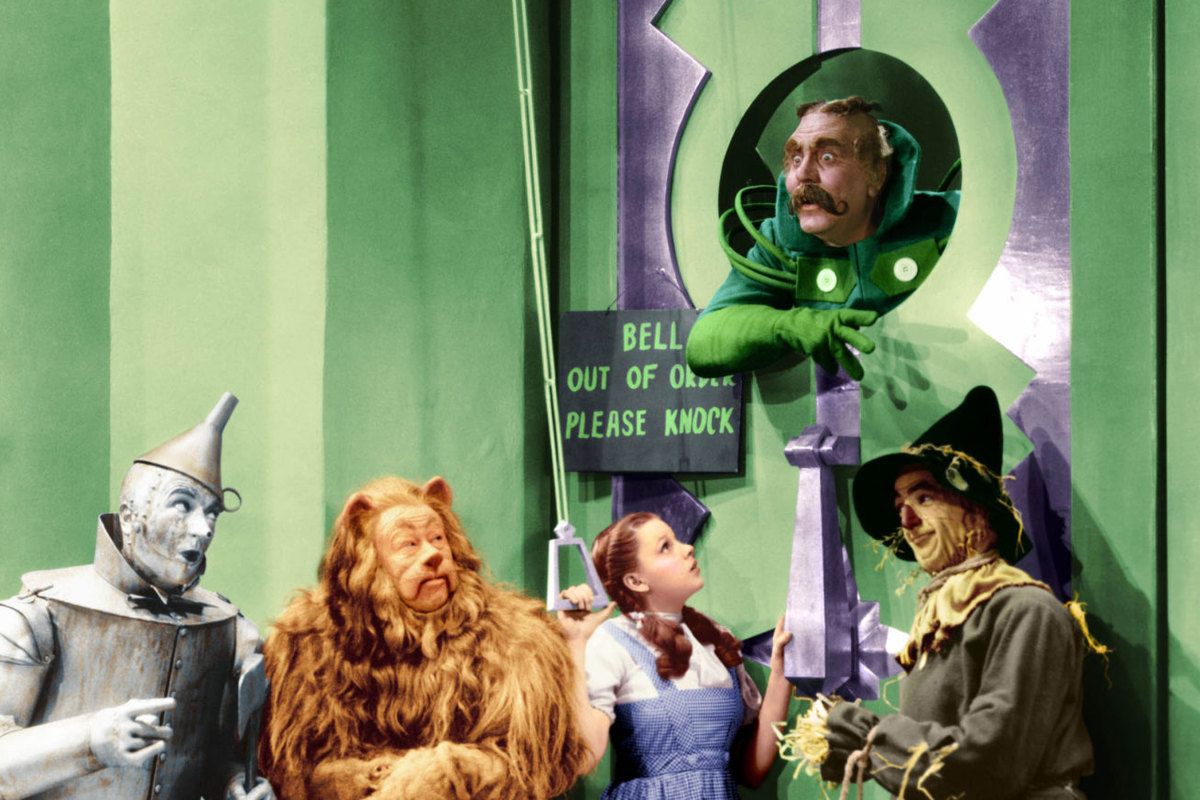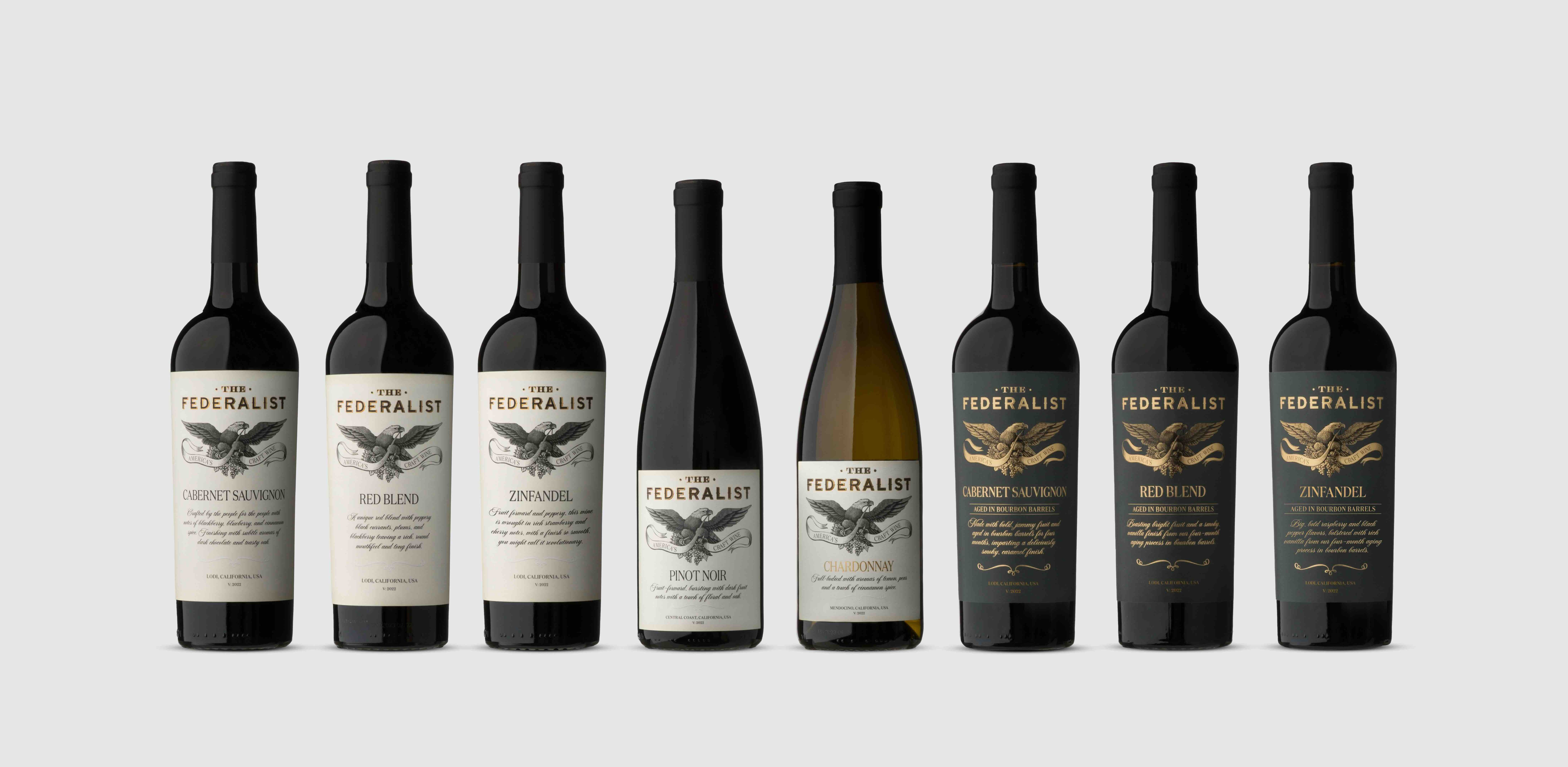If you were not at the first International Bulk Wine & Spirits Show to be held in London you might want to reconsider and book the time to go next year. Particularly if you want to carry on doing business with major supermarket, restaurant and pub groups. Richard Siddle explains why.
Now admittedly it is quite a stretch to throw the Wizard of Oz and the huge growth in bulk wine into the same sentence. But if it means you read the next sentence, and the next then here’s why.
We can all remember that moment when we first saw the Wizard of Oz. A film that spends the best part of two hours leading up to the moment when we are going to come face to face with the all powerful, all knowing, yet highly mysterious figure of the Wizard of Oz. Only for the curtain, literally, to be drawn back to reveal a quiet little man with lots of lights and levers to pull.

Would you want to show your retail buyer exactly everything that goes on behind the scenes?
Now if I can bring back you to the yellow brick road of the global wine industry and for years our wine aisles were full of carefully made and marketed brands from all corners of the world. Where it was the producers, the importers, the distributors who brought their all ready made up, sealed and packaged wines to big retail buyers to buy and put on their shelves or restaurant and bar lists.
Yes, the retail buyers would be invited out to see how the wines they stock are made, but it was very much on a “this is our brand, do you want to buy it basis”.
Bulk wine has pulled back the curtain on the traditional wine world to put all the power in the hands of the retail equivalents of the Wizards of Oz, only this time they are all powerful, all knowing and they have a lot more than a few levers to pull and lights to switch on.
It has allowed major wine buyers to work directly with producers and their importers to make, blend and create wines that are 100% focused on their needs and not because a branded wine company has some wine they want to sell.
This whole scenario was at the heart of last week’s inaugural International Bulk Wine & Spirits Show in London. A unique two-day event where the largely UK and European wine trade could go behind the curtain of the international bulk wine market to see what lies there for them.
Driven by private label
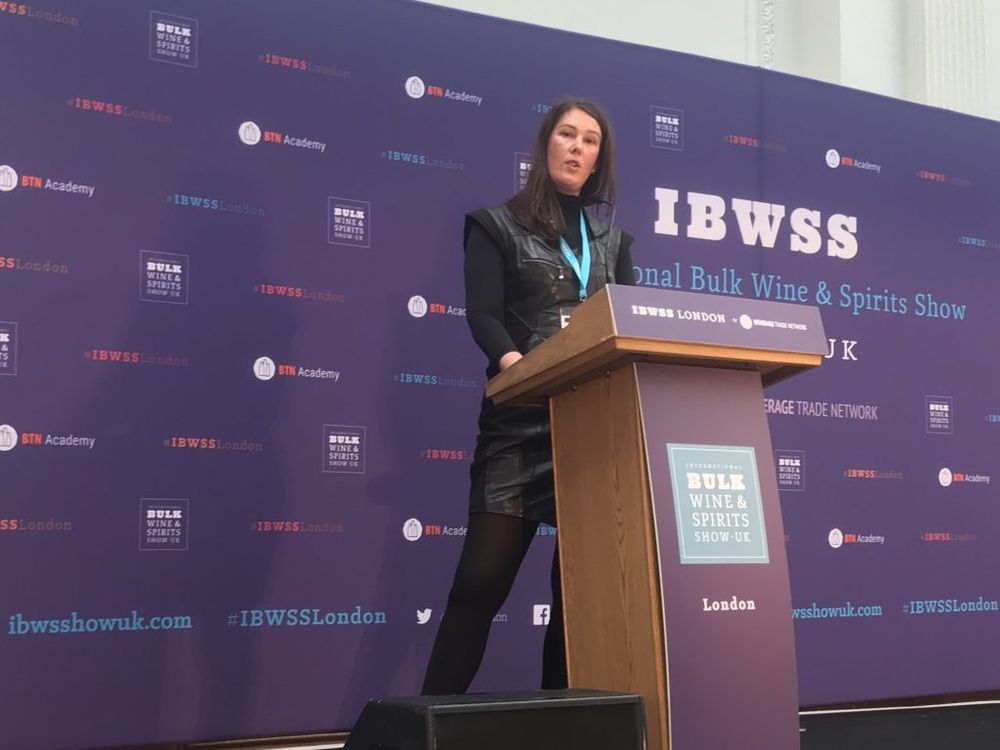
Clem Yates MW set out why private label just is so important for major wine buyers
Clem Yates MW, sourcing and supply director of Off Piste Wines, says the beauty of bulk wine is that it’s the most transparent sector of the industry. There is nothing to hide. Retailer and restaurant buyers can see exactly for themselves how much it costs at each stage of the production supply chain to make, ship, bottle and transport a bottle of wine direct from a winery to their stores.
It makes perfect sense for them to want to stock and create wines that they are completely in charge of. In the same way they are of so many other private label ranges in their stores. Yates claimed private label now makes up19% of the ranges of the top six UK retailers, from just over, 3,500 SKUs.
But if you look at their total ranges then private label is now making up 52% of their choice, which breaks down as 54% in Sainsbury’s and 49% in Tesco, and is growing as a sector twice as fast as brands.
Clive Donaldson, wine sourcing manager at Morrisons, made it quite clear that private label is only going to become even more important for supermarkets. For two very different, but important reasons.
First it brings them as close to their customers’ needs as possible.
“Private label is all about managing the full process. Where we can choose every element about the wine,” he explained. “For me it’s like getting a tailored suit. It’s the perfect fit for me and my retail environment.”
Bulk wine = private label
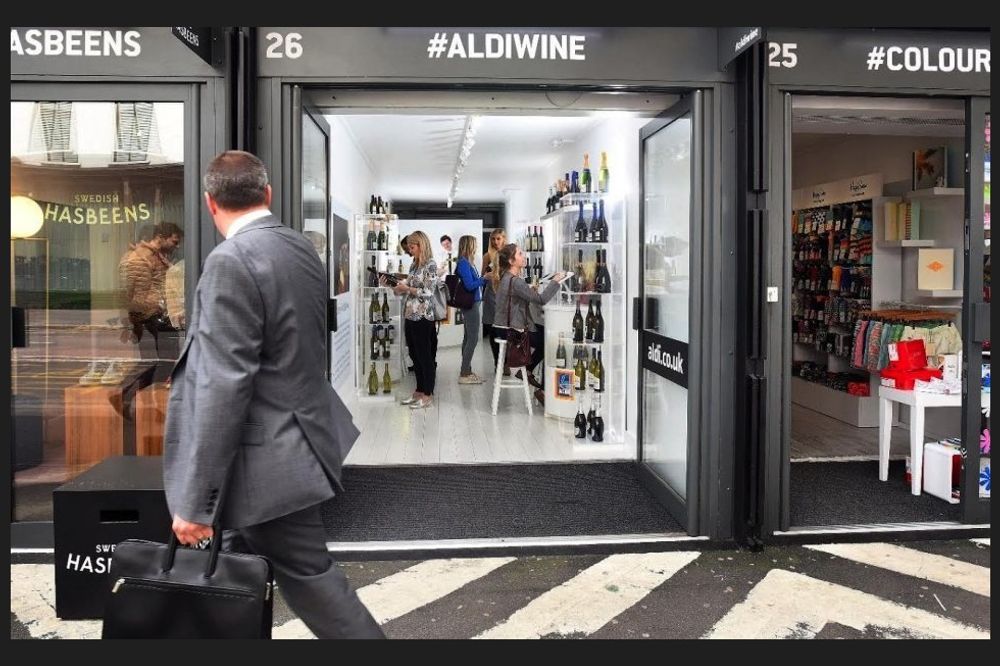
The rise of the discounter and their near 100% private label ranges is forcing major supermarkets to drive up their own private label offers
Which is good news for the bulk wine industry, for it is bulk wine that is “helping to facilitate the growth in private label” goods.
That debate between private label and branded goods and what’s right for a particular retailer, or any of its products or categories, is at the heart of the overall grocery industry and its wider battle with the private label-dominated hard discounters, Aldi and Lidl.
For Donaldson it is not just about creating a supermarket own brands, it’s about developing a wine that is just right for the Morrisons consumer. It’s that subtle difference that bulk wine providers need to understand and come up with the right solutions for them.
Don’t just see pleasing him as your number one goal. “What I think is irrelevant,” said. “It’s what my customers think that is important.”
Category powers
The other key reason why private label is such an important issue for wine buyers. It gives them power, and more authority within their own supermarket chains, explained Yates, who has previously worked for big chains like Sainsbury’s.
Remember each category director within a supermarket or restaurant chain has to deliver targets to their bosses. There is enormous pressure to make sure every single line is there for a purpose and delivering the kinds of sales targets placed on them.
By working with bulk wine and private label it gives the buyers more control of what any particular wine is there to do, she added. Get them right then they are in a better position to argue for more space and more investment to go out and make even better wines.
Threat to brands
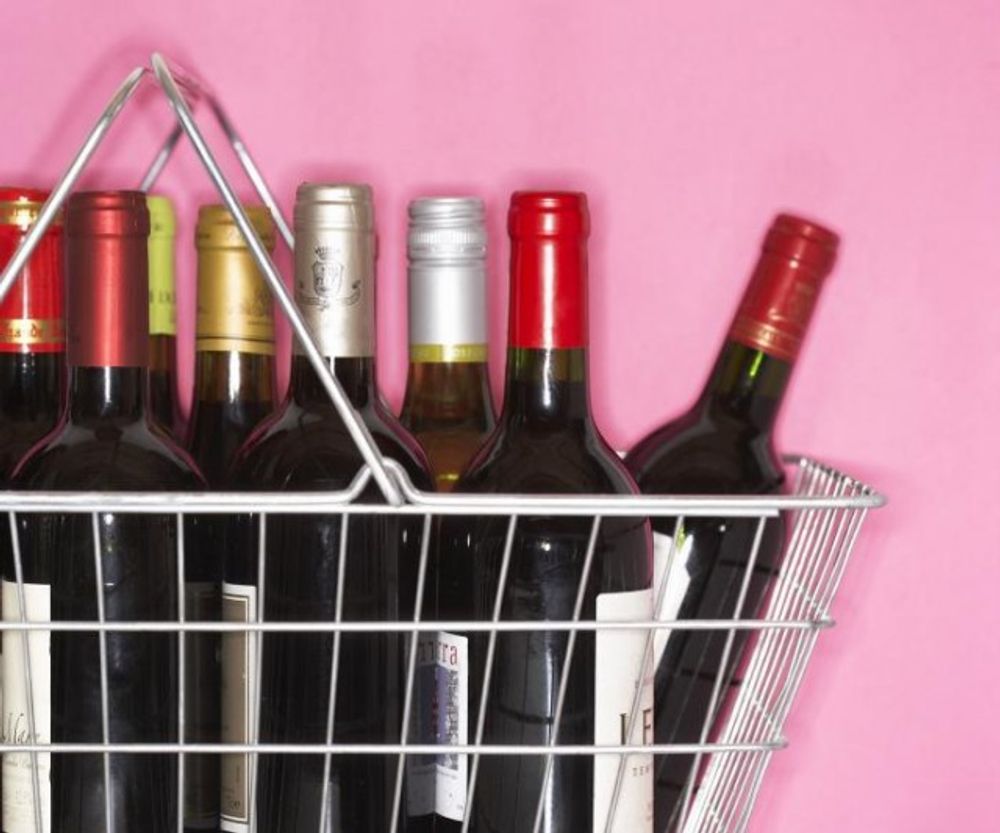
Wine brands are increasingly being pushed out in favour of private label
All of this is a very clear threat to the future of wine brands per se on supermarket shelves. So it was surprising to see so few branded players at the IBWSS event.
Yes, the big brands, the Top 10, the Top 20 are probably safe for now, but with ever decreasing ranges, and less SKUs to fight for then the squeeze is likely to come on the second and third tier brands. The nice to haves. The ones that don’t have the marketing spends to make them bigger than they already are. Those are the ones ripe for picking for private label.
Sainsbury’s has even gone one step further and taken out Top 20 household wine brands and replaced them with copy cat versions of their own, with Camino del Angel replacing Casillero del Diablo in their stores.
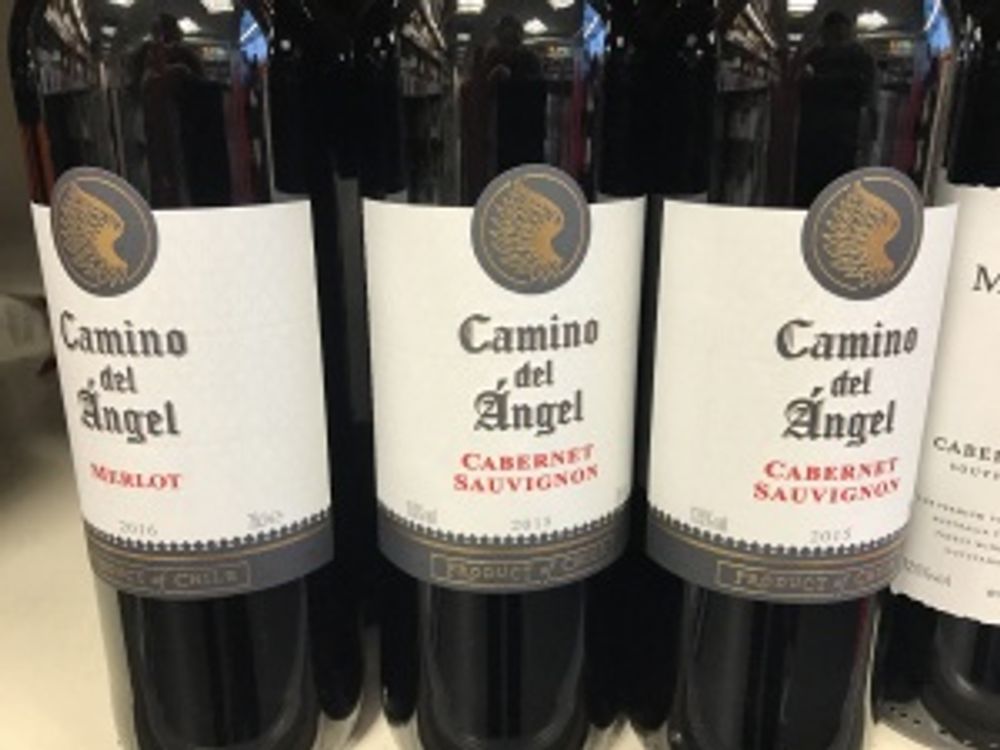
Mmm…seems rather familiar?
Having said all that, creating a private label brand is not easy. It needs a lot of people and help along the way to get it on to a shelf or a wine list. It is why we are seeing such huge changes taking place amongst those traditional wine agencies, importers and distributors that are adapting their business models to be so much more than simply a supplier of large volumes of wine.
If the supermarkets, added Yates, are to increase their private label footprint they also need to invest in the due diligence and quality controls needed so that the can track a product from source to shelf.
Which again makes bottled in market goods ever more attractive. Yes, there are the much needed environmental benefits, but ultimately packing in market allows them to keep a very close eye on how a wine is being handled and managed just down the road, rather than the other side of the world.
New business models
Which, in turn, has given more need for and more power to the bottlers and brand development companies that have sprung up around them.
Businesses that have become new product and brand development agencies in their own right. Companies that are creating consumer specific, market driven wines for their customers where bulk wine is the tool they use to deliver bespoke wines, rather than it being simply the wine they choose to trade in.
Bottlers, like Broadland Wineries and Kingsland Drinks, are becoming brand developers in their own right, either creating their own brands, or mostly looking to work with their retailer customers to find the wine and create exclusive brands for them.Where their extensive sourcing contacts and bottling technology become potentially indispensable partners for their customers.
The Lanchester Group, for example, has gone a step further and created two separate businesses within its own company. Greencroft Bottling to do exactly that and act a direct bottler for all its customers. And Lanchester Wines that has been created to act as a separate brand and wine development partner for what could be the same customers who then uses Greencroft as its own bottling source.
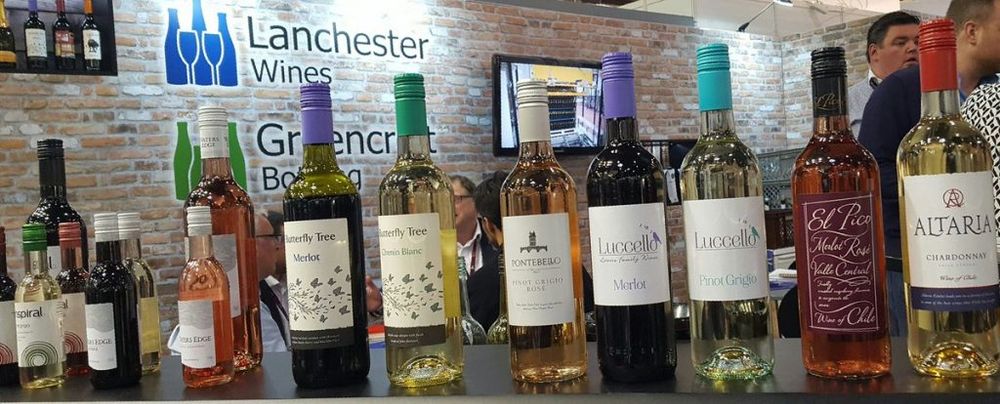
Some of the exclusive wines created by Lanchester Wines
Huge growth
Anyone in the sector who might look down their nose at the bulk and bottling end of the industry might want to look at their growth figures. For in an industry where the traditional specialist wine importers are seeing flat or stagnated growth, all these businesses are showing enormous growth of tens of millions of pounds over the last five years.
Interestingly a lot of that growth is being re-invested both in better bottling equipment, but also in consumer and market insights to help those businesses better understand the kinds of wines they need to be presenting to their retail and restaurant customers to buy.
Noticeably, during The Buyer debate at IBWSS, when leading figures from between Broadland Wineries, Kingsland Drinks and Copestick Murray were asked how they would spend an extra £1m in their business, they each said they would spend it on better technology to understand shoppers and their customers better.

It’s all about the consumer for Neil Anderson at Kingsland Drinks
Neil Anderson, marketing director at Kingsland Drinks, stressed future wine trends are not just going to be about who has the biggest volume of cheapest wine available to buy and ship, but which styles of wine are consumers going to want to drink.
All of which means the UK leads the world on varietal-driven wines. Consumers are now far more confident about which grape variety they like, one which country or region it comes from.
Robin Copestick, managing director of Copestick Murray, said the success of its iHeart varietal wine brand has tapped completely into the need to simplify the branded message to the consumer. This is also not just a UK phenomenon, iHeart is now in 25 plus countries around the world as consumers latch on to the brand and which varietal it is promoting.
Creating brands that are all about the varietal, which is the foundation on which private label wines are being built, also gives buyers and suppliers the freedom to move around and switch supply to countries which may or may not have the quality of grapes available at the right price.
Sourcing troubles
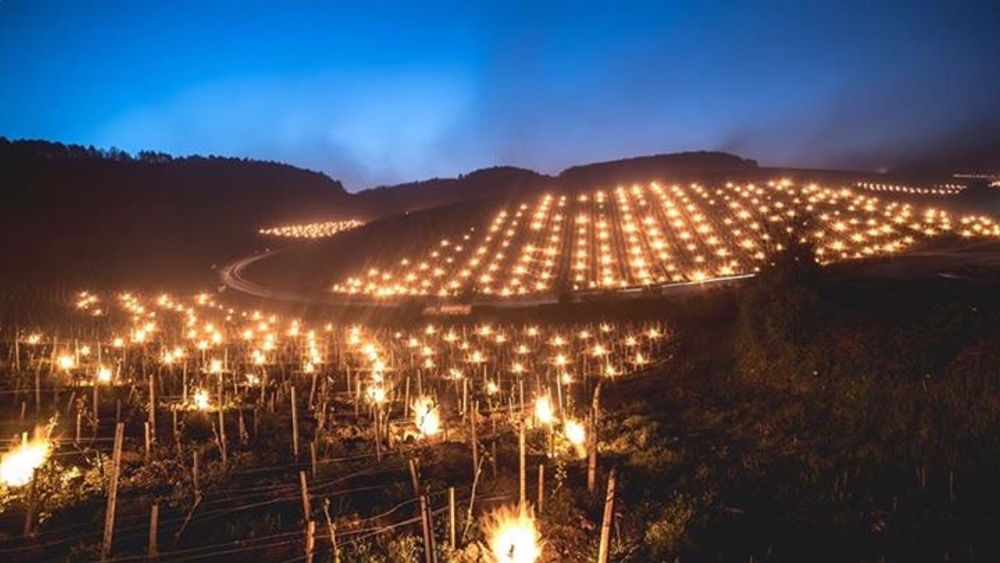
The frosts that hit European harvests have resulted in the smallest world harvest of wine since 1961
Which in 2018 is proving even more necessary due to the shortages from the 2017 global wine harvest.
The repeated message at IBWSS was all about partnerships and producers and suppliers working even closer together to ensure they still have enough wine to supply each other.
Buyers do not have the time or desire to go in search of a whole stream of new partners for each one also needs to be vetted and assessed. Instead they are looking to work even deeper with the producers and suppliers they have.
Which is good news for the world’s major producers with the scale to buy in more grapes, acquire more wineries and land to keep up with their demands.
It is also, perhaps, easier to say than do, particularly as there is now so much more competition and demand for that wine from new markets around the world.
Beyond expectations
IBWSS London heard how the increasing globalisation of the bulk wine market was good for the sector as a whole, but it added more competition to the mature markets and increased options to producers to find the right buyers and partners to work with.

It is up to businesses like Broadland to go even further now for suppliers
Mark Lansley, managing director at Broadland Wineries, said it was the long term arrangements and relationships that it has built up over many years with its trusted suppliers that means it is now well placed to be able to work with them and their customers for mutual benefit. But that was not enough in itself to find new business.
“Satisfying our customers is not enough. We have to find ways to delight them. To exceed, not meet their expectations,” he said. Which means finding ever better quality wine, at even more value, from a wider range of suppliers. “We have as bottlers to be even more flexible, reliable, innovative and efficient.”
Which also means being able to offer more bespoke, cutting edge formats that deliver, he added.
Most of the players present at IBWSS said they were having to look at new and emerging markets to help source wine. Copestick said Eastern Europe, particularly Romania, had long been a good source wines for its iHeart range, with Moldova now very much in the frame.
Big and small bulk wine players
There was further food for thought for those who dismiss bulk wine as being just big volume, lowest common denominator wines for the major retailers.
Increasingly it is being seen as a way to help smaller independent wine specialists and regional wholesalers to grow and strengthen their position by sourcing wines that they can ship in volume to help bring much needed margin and cash flow at the same time.
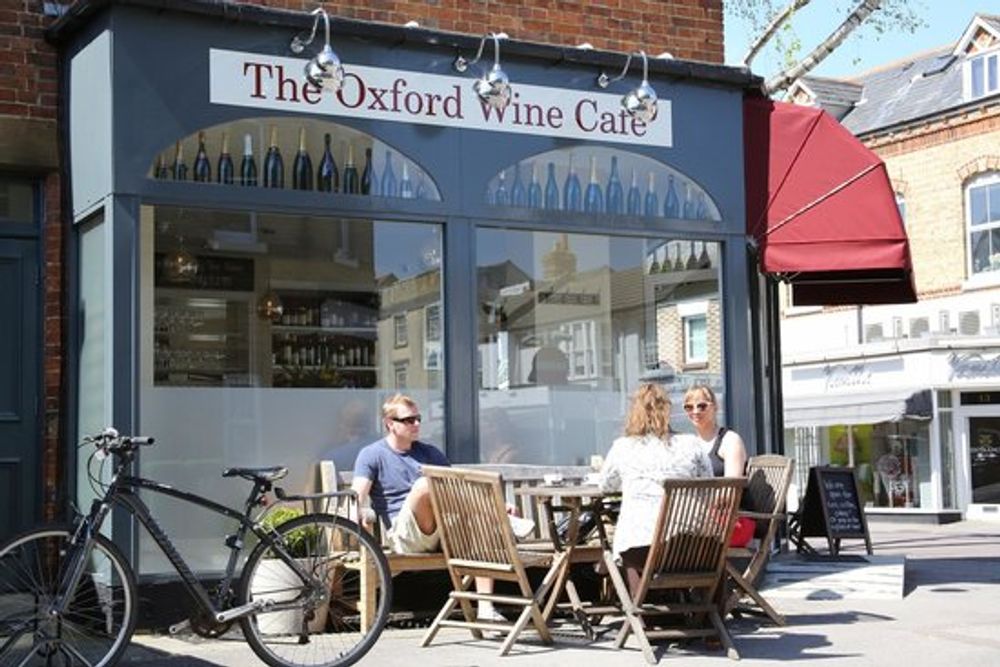
Oxford Wine Company is using bulk wine to source ever more exclusive wines for its shops and bars
Ted Sandbach, managing director of the Oxford Wine Company, explained how it is now working with similar non-competing independent players in other parts of the UK to source exclusive wines they can collectively ship in bulk to the UK, in one instance through Boutinot, and sell to their respective customers.
Something that simply was not possible just a few years ago as distributors and bottlers did not have the capacity, or inclination to offer their services to those wanting to move what by comparison to their normal business is such small volumes of wine.
Not only does it allow Sandbach to ship and sell ever more exclusive wines it provides him with a potentially higher margin that he can sell either in his stores or his on-trade customers. “I am taking a risk bringing this wine over in a container so need that re-assurance,” he said.
A move that reflects both the growing significance of the independent and specialist wine sector, but also the ability of the bulk sector to now source and ship increasingly premium wines.
Anderson said it was now regularly shipping and bottling wines that retail at £12 or more.
Donaldson said some of the most expensive wines in the Morrisons range were bottled in the UK, including an old vine Shiraz from the McLaren Valley.
Here’s what you missed…
Often with these sorts of events it is interesting to see which companies were not there as well as reporting on those that were.
It was not just the big brand noticeable, for example, how few of the more traditional wine agency, importer and distributor businesses were absent. Companies that have, some more forcibly than others, made it quite clear that bulk wine is not for them and that they are all about finding specialist, bottled wine from producers that can tell and share a story.
If they had taken the time to come they may not have been convinced that bulk wine is the right solution for them. But they would equally have raised their eyebrows at the huge rises in turnover, sales and profitability of the previously traditional wine companies that have embraced bulk wine with both hands.
Growth figures that are a lot harder for them to find or match in the traditional wine distribution sector.
The businesses that have changed their trading models to become closer partners and suppliers of major multiples and other major customers who are increasingly looking for exclusive lines and private label brands.
Organisations that are on the front foot, investing in shopper and consumer insights and using marketing teams, brand developers, designers and creative agencies to produce brands, in different formats, that are taking up increasing space and share of supermarket wine ranges and restaurant wine lists.
It will be interesting to see if they dare stay away again next year.
- You can find out more about IBWSS and other events it is hosting including an event in San Francisco in July here.
